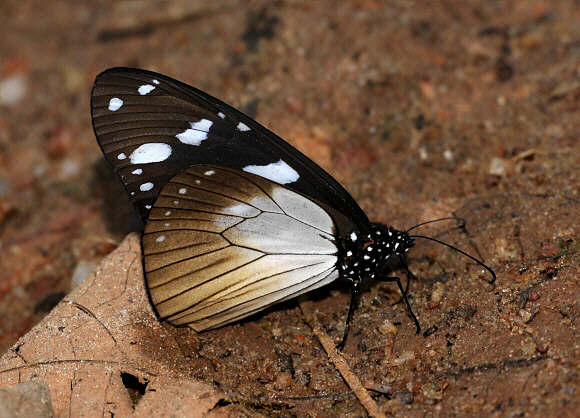
Introduction
The subfamily Danainae comprises of 3 tribes: the neotropical Ithomiini, the Tellervini of Papua New Guinea, and the Danaini which have representatives worldwide. The Danaini includes the Monarchs, Tigers, Nymphs and Crows, comprises of about 190 species in total.
There are 10 Amauris species, all confined to the Afrotropical region. They are large butterflies with blackish-brown upperside, marked with conspicuous white or cream blotches.
All Amauris species are toxic to birds. If a bird attacks and tastes an Amauris it instantly vomits and suffers from nausea. Birds quickly learn to associate the colour and pattern of toxic butterflies with these unpleasant experiences, and are consequently deterred from attacking other butterflies of the same species. Several non-toxic butterflies have taken advantage of this fact, by evolving similar patterns which fool birds into leaving them alone, e.g. the colour and pattern of Amauris species is mimicked by several palatable butterflies including Hypolimnas anthedon, Graphium almansor and the female of the Mocker Swallowtail Papilio dardanus.
Amauris tartarea is a widespread species, found throughout the forested belt of sub-Saharan Africa from Guinea to Angola, Malawi and Tanzania.
Habitats
This species is found mainly in open disturbed forest but also penetrates agricultural areas provided that there are a few thickets or clumps of mature woodland.
Lifecycle
The larval foodplants include various Asclepiadaceae.
Adult behaviour
Males can often be seen in groups of 4 or 5 imbibing mineralised moisture from muddy patches, or sequestering pyrrolizidine alkaloids from broken Heliotropium roots on logging roads. Both sexes visit a wide range of flowers but show a strong preference for Lantana.
